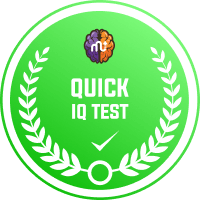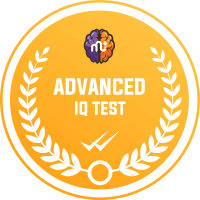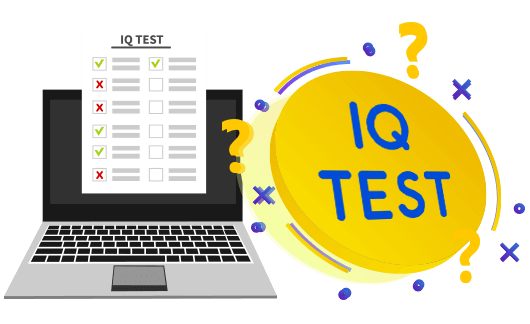What Is the WAIS Test? Types of Wechsler IQ Test
The Wechsler Adult Intelligence Scale (WAIS) is a widely recognized IQ test for adults and older adolescents. It was developed by psychologist David Wechsler and belongs to the Wechsler family of intelligence tests, which assess cognitive abilities across different age groups.

One area where the WAIS is used is by neuropsychologists and rehabilitation psychologists for patients who have undergone significant trauma. The test helps to assess cognitive abilities and recognize the affected brain areas.
The typical WAIS age range is between 16 and 90. However, other Wechsler scales, like the WISC and WPPSI, evaluate the cognitive abilities of a specific age group.
Although the WAIS is a valuable tool, it may not accurately represent extremely high or low IQs. It has limitations in measuring extreme intelligence ranges and for certain age groups. Wechsler himself warned against using it for individuals with IQs below 70 or above 130.
Discover your cognitive abilities with the MentalUP IQ Center! ⭐️
MentalUP IQ Center offers two powerful IQ tests for analyzing your brain skills while discovering your true potential. You can choose from the Quick IQ Test or the Advanced IQ Test for a deeper dive. 📊
Plus, you'll receive a detailed report delving into your cognitive profile, offering insights into your abilities, as well as a score certificate.

What Does the WAIS Test Measure?
The WAIS test, along with its subtests, evaluates the overall intellectual and cognitive functioning of individuals. These tests assess cognitive abilities in various areas and generate a comprehensive IQ score divided into four categories:
- Verbal Comprehension: Measures understanding of words, how things are alike, and general knowledge.
- Perceptual Reasoning: Assesses the ability to solve puzzles and visually understand patterns.
- Working Memory: Tests the ability to remember and do simple math.
- Processing Speed: Checks how fast you can match symbols.
How the WAIS Is Scored?
The WAIS IQ Test calculates scores based on a series of subtests. Each subtest focuses on a different aspect of cognitive function, such as memory, comprehension, and processing speed. After each subtest is completed, the raw scores are converted into scaled scores.

The Full Scale IQ Index, derived from the main subtests, is converted into a standard score, with percentile ranks indicating an individual's position relative to the general population.
Versions of the WAIS IQ Test
The Wechsler Adult Intelligence Scale has undergone significant refinement since its introduction in 1955. Let's explore this evolution through its four editions:
- WAIS (1955): The original version aimed to assess adult intellectual abilities.
- WAIS-R (1981): This revision introduced new subtests and enhanced the test's statistical properties.
- WAIS-III (1997): This update expanded the applicable age range and introduced new scoring methods.
- WAIS-IV (2008): The most recent version further refined the test by introducing a General Ability Index. WAIS 4 assesses cognitive skills in individuals via 10 core WAIS-IV subtests.
Today, the most frequently used WAIS intelligence test is the WAIS-IV test. It provides two overall summary scores: Full-Scale IQ and General Ability Index.
Reveal your real cognitive superpowers with MentalUP! ⭐️
MentalUP IQ Test results include a comprehensive analysis of your strengths and skills that can be improved, creating a tailored roadmap for boosting your cognitive abilities.🎯
MentalUP: the ultimate platform to take your discovery to the next level! Using your IQ test results and analysis, MentalUP unlocks personalized brain games and content to support your cognitive journey. 👏
What Kind of Questions Are Asked in the WAIS?
Now that we've explored what is WAIS, let's delve into the specific types of questions you might encounter on the test. By familiarizing yourself with types of questions, you can approach the WAIS with more confidence and improve your performance.

The subtests in WAIS IV do not involve specific knowledge you may have learned in school. Instead, they focus on underlying mental skills. WAIS test examples fall into the following categories:
- Verbal Comprehension: These questions examine your understanding of words, proverbs, and concepts. For example, you may be asked to define words, explain the meanings of proverbs, or identify similarities between different objects.
- Verbal Reasoning: These questions assess your critical thinking and problem-solving skills using linguistic intelligence. You may be asked to solve analogies, arrange jumbled stories in a logical sequence, or identify missing elements in a logical reasoning pattern.
- Processing Speed: These questions test how quickly and accurately you can process visual information and mentally manipulate symbols. Tasks may include coding symbols according to a key or rapidly canceling out specific targets within a cluttered page.
- Working Memory: These questions evaluate your ability to hold and manipulate information in your short-term memory. Tasks may involve repeating a series of digits forwards and backward or mentally manipulating blocks to recreate a pattern. Playing memory games may help getting higher scores in this category.
- Perceptual Organization: These questions explore your ability to analyze visual information, identify patterns, and mentally construct a whole from its parts. You may be asked to assemble fragmented pictures, complete missing pieces in a design, or copy block patterns.
These skills are broadly categorized into what are the four areas of intelligence the WAIS-IV scores? – Verbal Comprehension, Perceptual Reasoning, Working Memory, and Processing Speed.
Benefits of the Wechsler Adult Intelligence Scale
The WAIS IV test provides a comprehensive analysis of cognitive abilities, offering advantages for individual development. It identifies both strengths and weaknesses, highlighting areas where individuals may excel, as well as areas with potential for improvement.

Taking a WAIS test enables planning for improvement in education, jobs, and personal growth by revealing talents and areas that need enhancement. Here are the advantages that make WAIS IV testing a valuable assessment tool:
- The WAIS-IV scoring process provides a standardized IQ score, helping in identifying giftedness or intellectual disabilities.
- WAIS IV score ranges can highlight patterns of strengths and weaknesses, suggesting potential areas for improvement.
- WAIS-IV scores can be used to track cognitive changes, helping identify early signs of dementia or other neurological conditions.
- With WAIS results, therapists can customize interventions or treatment plans for conditions like ADHD or learning disabilities.
- Percentile WAIS IV scoring tables compare scores with age groups, highlighting domains of strength or support.
Limitations of the WAIS Test
Although the WAIS test serves as a beneficial tool, it does not measure or evaluate certain areas. For example, WAIS typically does not measure the following:
- Personality: The WAIS test focuses on cognitive abilities rather than personality characteristics.
- Emotional Intelligence: The WAIS test does not evaluate EQ, emotional awareness, or empathy.
- Learning Styles: The WAIS test does not assess an individual's learning style or preferences.
- Focus on Cognitive Skills: WAIS-IV doesn't capture soft skills like motivation, creativity, or social skills.
- Areas of Interest: The WAIS does not evaluate an individual's specific areas of interest.
- Snapshot in Time: The test provides a picture of cognitive abilities at a specific moment.
- Age Range: The WAIS-IV age range is limited to individuals aged 16 to 90 years old, making it unsuitable for younger children.
Other Weschler IQ Test Variants and Uses
WAIS is a part of the Wechsler family of tests, created by Dr. David Wechsler. Each Wechsler test is tailored to different age groups. These tests assess and pinpoint the cognitive abilities of individuals in specific age groups.
- WISC: The Wechsler Intelligence Scale is designed for children aged 6 to 16. It provides a comprehensive evaluation of cognitive abilities, offering a more complete understanding of a child's intellectual capabilities.
- WPPSI: The Wechsler Preschool and Primary Scale of Intelligence is a test tailored for children aged 2.5 to 7. It evaluates cognitive abilities significant to early development, such as understanding verbal information, visual problem-solving, and short-term memory.
- WASI: The Wechsler Abbreviated Scale of Intelligence is a condensed version of the WAIS. It provides a quick estimate of full-scale IQ by utilizing a smaller set of subtests.
Where to Take the Wechsler Test?
While you can find plenty of information about the WAIS test online, including sample questions and explanations, taking the WAIS IQ test online is not recommended.

The Wechsler tests are typically implemented in schools and hospitals, though availability can vary based on location. You can check the official websites of local education departments, major medical facilities, or nearby universities to find certified practitioners.
Alternatively, universities likely have resources or contacts to assist with the WAIS test. By taking these steps, you can ensure that you have access to this valuable psychological resource.
Activate your intellectual potential today with MentalUP! 🤩
You can upgrade your problem-solving and logical reasoning skills quickly and get certified! MentalUP IQ tests are online, quick, accurate, and appropriate for all ages. 👨👩👧👦
Start your cognitive journey with MentalUP today! 🧠💪







